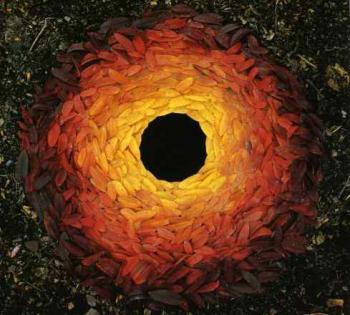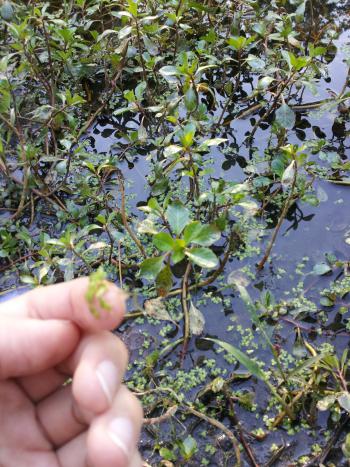Serendip is an independent site partnering with faculty at multiple colleges and universities around the world. Happy exploring!

Schools, Prisons, and the War on Drugs in “Third-World USA” (VOICE PAPER #2)
My trip to see mountaintop removal coal mining in southern West Virginia gave me a new perspective of the connection between schools and prisons that parallels discussions we've had in class about the war on drugs and over-surveillance, and the ways in which public schools set certain students up for failure and oppression by the system. I hadn't expected to see such a connection, as I, like many, have a tendency to forget that all issues of oppression are inherently connected and stem from upper-class white male control as it dominates society; to see that the schools are about as confining and the war on drugs about as harsh in these poor, white, rural Appalachian communities as they are in the poverty-ridden, predominately black inner cities. In looking at the various images we all posted last week, HSBurke’s pictures particularly hit me, one of a man standing against the bars of his prison cell, the other of a little boy standing similarly against the bars of the school yard fence. Both people were white, which really made me think of how the over-surveillance in “third world USA” (WV) is less an issue of race than class.

In anticipation of our Bryn Mawr rambles next week - Wissahickon Schist
Karl Kirchwey came back to campus last year and read this poem:
Wissahickon Schist
What did you think the color of learning was,
if not mica and hornblende flashing in a long-settled gray?
You look for a plane along which it will cleave
to admit the self, but it is you who are divided
always between resolution and doubt,
having read A small amount of fissile material
was smuggled across, remembering certain islands
long ago, the windblown passages between,
wild thyme on the offshore breeze from Lemnos
or the white slash of a coral runway at Tinian.
You open a book to the stories of changing forms
and see the guts of a mole exploded on the lawn,
a red-tailed hawk balanced, nonchalant, on the railing,
and the day's light cut on such a deep bias,
On text and experience and the experience of text
I was a little confused by the prompt for this posting. Part of the prompt asked about the direction we want the class to head in for the remainder of the semester, but there was also stuff about gender and the environment. I decided to reflect on the conversation we had this week on text vs. experience.

What do murderers look like, anyway?
I am particularly thankful for Zehr's decision to photograph the men and women in street clothes for their representation in Doing Life. The first thought I had upon cracking open the book was "Wow, these people sure don't look like prisoners." In fact, I actually had to flip back to the introduction to verify that I was indeed looking at people who would spend the rest of their lives behind bars. On one hand, I think that the choice to take these people out of their prison attire was one that influenced my inability to connect them with the institution. More so, however, this book reminded me that, "lifers" or not, these people ARE JUST PEOPLE. People who had jobs, families and aspirations. People I could have stood next to in the grocery store checkout line. Whoa. It is disappointing to me that despite this mini-epiphany, I still feel a burning desire to know why these people did what they did to land themselves in this situation. I see this as my minds attempt to understand what separates them from me. But of course, not having access to this information, separation is impossible. I wonder, know, how I will react to being with the women at the Cannery tomorrow. Will they look any less "normal" to me because they'll be wearing the prison uniform? Will I be able to more easily erect that wall of separation that I seem to subconsciously strive for because of this? I think also that there is something to be said about Zehr's use of black and white photography. I've always thought that a lack of color in photography serves to soften edges, blur the lines.

leave no trace?
So in class yesterday, we talked about how we have both liberal and radical feminist movements, but environmentalism is still in its preliminary stages – still reactionary. As Aliza put it, for many people, the environment/nature is a museum. Leaving no trace, experience is limited in many ways to observation, a surface level brush with “the wild.”
This just made me want to interact with my site! What would a radical environmentalism look like?
I saw this documentary a while ago, called Rivers and Tides. It shows the work of Andy Goldsworthy, who calls himself a ‘landscape artist.’ (it’s available through Tripod – it’s a slow-moving film, but it’s worth the time!) Here's an example of his work:

I like this method of "play" with nature, so I tried it out too (not as intense..)
Other notes: today was my 6th visit to my site. I don’t want to move yet – I heard back from Ed Harmon about Grounds’ plans to change some of the space into a wildflower/conservatory area. So I want to be there, at least for a few more weeks, for further developments.
LBCP
"Knowledge is an island surrounded by a sea of mystery"- Chet Raymond, page 30
One of my go-to questions with any sort of presentation, be it a play, a school lesson, a presentation, etc, is "Is it accessible?" When something is presented to me, I don't like to leave feeling absolutely clueless. Maybe this is a privileged state of mind: that I should have some ownership over the thoughts or ideas that people present. The LBCP book talks a lot about doing things for yourself (ie: not everything needs to be performed or presented) and allowing them to be vague. This is making me realize that maybe some performances and presentations aren’t meant to be easily accessible, and you are supposed to just enjoy the ambiguity, and also makes me realize not everything I do necessarily needs to be shared (which I struggle with…if someone doesn’t know I did something, is it real?) These are ideas I strongly "react" to instead of "reflect" on (I believe that is the language used in the book at one point, but I lent my copy to a classmate and can't double check at the moment). I react by feeling uncomfortable with keeping something to myself or by trying to be okay with vagueness; I think to myself “okay, I want to have an open mind, but I feel like I can only be so open until my brain falls out”. But at the same time, the quote above really appeals to me because I feel like it is vagueness, floating around something concrete that I can hold on to.

Walking Near the Pond
Finally decided I needed to walk past the fence and see the pond up close. What from far away seemed liked a mess of greenery in the pond, maybe some over growth of moss, up close was this pic below. The photo doesn't capture it completely, but these plants break the surface, but wind way down into the water. In the pic, one can see the leaves within the water; I reached to see how far down the stems went, and they just wouldn't end. There was so much complication and so much depth to these plants. Some had leaves that were pointed, others had smaller ones that fit like confetti in my fingers that had floated up off the plants to the top. These small leaves were also attached to the stems. From far away, these were a bunch of green plants that had compiled or gathered on the surface, and after stepping up to see them, I saw that it was a lot more complicated than that. There was a variety of stems and leaves just on these single plants, and they were rooted in the pond itself, not just gathered on the surface.

Expectations and Assumptions
As I arrived and settled into my position on the bench, I did so with some expectations , chief among them was that I was going observe a huge amount of change in observations in comparison to my last week two weeks ago . I expected this change to be part of the ongoing and inevitable march of autumn into winter. In some ways this was true as there was not one uniform color scheme for the leaves in the visible tree line, I had a much better view of Haverford Road from angles and positions previously covered by foliage and there were absolutely no birds in sight or within earshot. These observations of autumn though seemed overshadowed by several observations that suggested that seasonal transitional wasn’t transitioning as fast as I thought they might/should. The most notable observation to back this up was that it was HOT sitting on the bench, as the temperature was pretty high, the sunlight was bearing down on the bench directly, with no tree shade or clouds and hardly any wind to cool the area down. Also in comparison to bird life which had been nonexistent, the area surrounding the bench was filled with insect life, and I found myself swarmed by bees, lady bugs, and gnats (due to the isolation I guess I was the only living thing in the area they could swarm to) as well as observing spider web-like silk threads drifting by on what little wind there was and clinging to anything they touched.

Doubletake / The Garden 5
I felt the presence of something numinous in the garden as I opened the door and stepped out.
There was a rustle in the brush of something just disappearing on the periphery.
And then I saw the deer, a female, quiet, unafraid.
She slowly walked out of the garden and behind the house.
There was a rustle in the foliage right under my feet where I had noticed only dead leaves, golden and brown and still damp from the night's rain.
A rabbit in its Fall coat, blending with the foliage, skittered off.
And then I saw her, not too far away and not too near, so wondrous on her four paws and her tawny fur –-
a lioness right there in my garden!
But I saw right away that one of her eyes was bloodied and bruised.
And standing right next to her was a small boy, unknown to me, repeatedly hitting her in the eye with a club.
I became suddenly anxious, my mood shifted.
And I worried that the lioness would tire of her own patience and turn on the child and attack him.
But the lioness refused to use her power against the child.
And I stood in awe trying to decide what to do.
What would you do?



